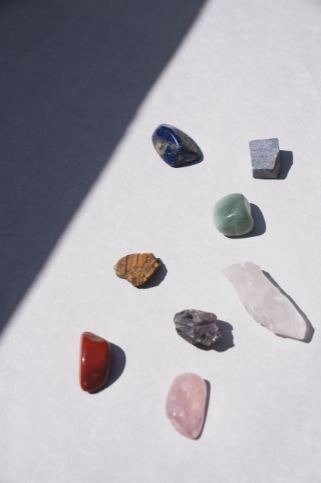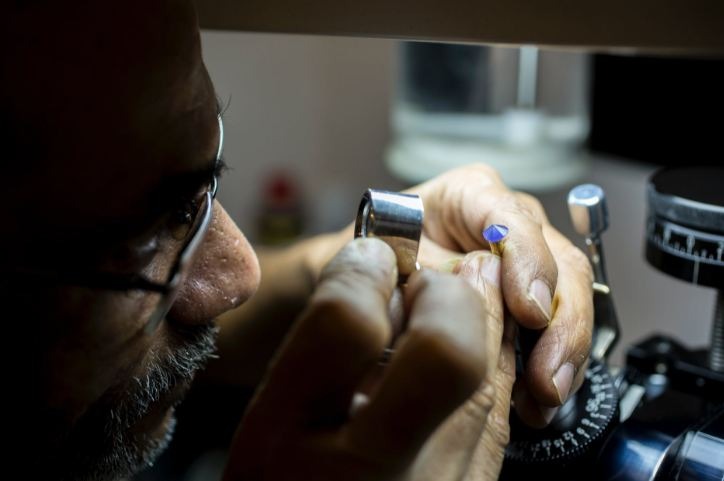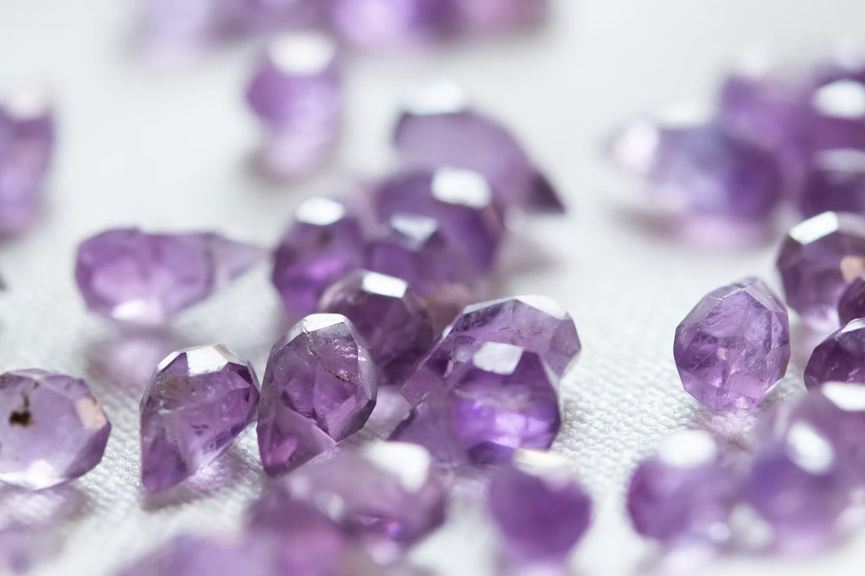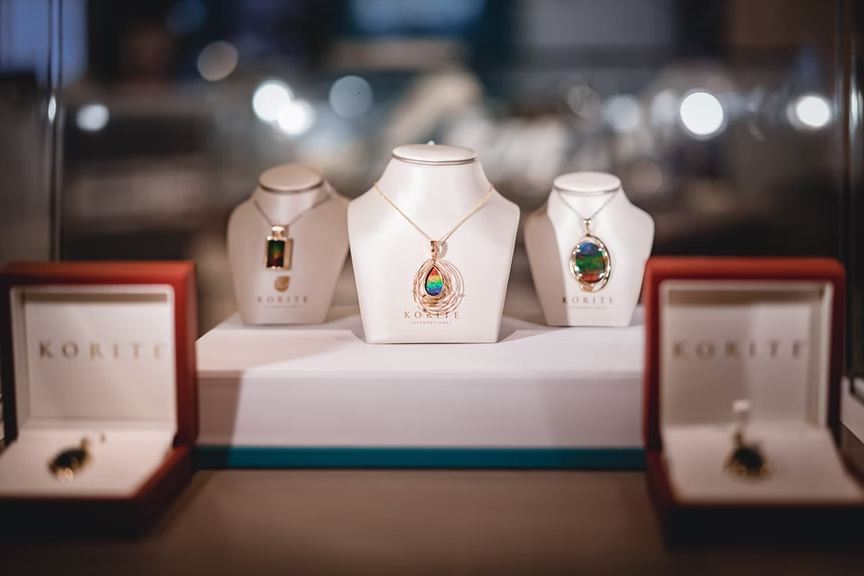Collectors, admirers, and investors are always on the lookout for the exquisite gems and stones out there for their alluring beauty and monetary value. These people always need professionals who have the scientific-analytical expertise to identify gems, find their properties and characteristics, appropriate treatment for them, and the right setting for the stones, as the setting appropriate for one stone might destroy the other. This article will take you on a ride to educate you about gemology and jewelry arts, what a gemologist does, and the career options a gemologist can pursue.
Introduction to Gemology
The science of studying gems, pearls, and stones, their cutting, tests, and treatments are called gemology, and the people with this scientific knowledge and skills are called gemologists. It is an interesting and important area of specialization for mineralogists and has many career options for students to pursue.
Purchasing jewelry is always a risky business, as identifying gems is not always possible for an ordinary person. So, in the nineteenth century, the scientistic world started introducing strict standards for identification, classification, observation, and laboratory work. And that’s when the first gemology institute was created. Over the course of years, several institutes have played their roles towards developing and updating the current evaluation and certification system.
Gemologists can be jewelers, appraisers, goldsmiths, and collectors and need the professional knowledge of gemology to answer their customer’s questions and meet their demands. They learn the basic science related to gems and their optical and physical properties. These studies and research are essential to avoid fraud and protect consumers as well. From this knowledge, they can successfully identify the gem and their manufactured counterparts by conducting various tests using different instruments such as microscopes, loupe, and other grading criteria.
Gemologists can work on:
- Mineral species which are called gemstones or gem-quality crystals
- Diamonds
- Faceted transparent colored stones, for example, emerald, ruby, etc.
- Not faceted colored stones
What does a Gemologist Do?
A gemologist undergoes extensive academic study of gemstones, pearls, and precious metals. A gemologist analyzes the gems by carrying out tests, assesses their quality, grades them with the help of a set standard, and checks if they’re raw, synthetic, or an imitation. These tasks are very demanding as they need a lot of keen observation, critical inspection, intricate analytical skills, and extraordinary memory to identify a wide variation of gems. A gemologist can specialize in laboratory research and grading, jewelry design, museum curation, appraisals, merchandising, lapidary and more.
A gemologist performs the following roles:
- As a gemological specialist that assists in identifying and buying original gemstones for jewelry designs or wholesalers etc.
- Provide appraisal services and estate evaluation
- As a consultant/middleman for clients by addressing their concerns and resolving them
- Grading different stones according to the GIA grading system. The universal grading criteria were set by the Gemological Institute of America, a non-profit institution dedicated to research and education in gemology. This institute has helped hundreds of students choose their career paths.
- Help buyer verify the facts represented by the seller before payment
- Help with insurance for protection against theft, loss, or damage.
Career Options for Gemologists
Do you always find yourself attracted to gems and pearls? Do you have a passion for exploring them and want to get paid by making a career out of it? Well, don’t you worry. You don’t need a formal college degree to pursue a career in gemology. Instead, you need to take trade classes to receive certification. Different organizations worldwide, such as the Gemological Institute of America (GIA) and the International Gemological Institute (IGI), offer various courses for the art of gemology. And there are tons of different rewarding job opportunities for a certified gemologist.
Your study plan depends on which career path you want to choose. For example, if you’re interested in the cutting of gemstones, you should go for gem faceting classes and gemology training which is crucial for any gemology-related job. If you’re an admirer of diamonds and wish that to be the concentration of your career, there are additional diamond specialist courses available.
The career paths you can pursue as a gemologist:
Lab Gemologist
If you are interested in exploring the gems in a scientific environment, you can work as a lab gemologist. A lab gemologist is a scientist in the laboratory who analyzes, describes, and certifies a gemstone’s qualities and characteristics using lab equipment such as microscopes, loupes, and other grading instruments for examining gemstones. A lab gemologist writes the final report after examining the gemstone through all means.
Gemstone Appraiser
If you want to assess the monetary worth of the gemstones, then you can become a gemstone appraiser. Gemology appraisers conduct a critical inspection and bring together their gemology knowledge and the knowledge of local and global gemstone markets to deduce a monetary value for the gemstone. They decide the value of a gem in their report, which can be used for retail sales and consumers for other insurance services.
Gem Manufacturing
If you like making pretty things like necklaces out of these raw stones, then you can have a career in gem manufacturing, custom cutting, and design. These manufacturers take up raw stones and hone them into beautiful pieces of jewelry. A gemstone manufacturer treats gems through different processes such as faceting or cabbing to turn them into a more wearable precious piece. If you’re creative enough, you can bring your imagination to life with these pieces, or you can make custom pieces for others.
Gemstone Jeweler
If you like customer service, then you should look forward to being a gemstone jeweler. You can work as a professional gemologist at a jewelry store. Most reputable stores keep a handyperson to repair and recut gems and assess stones. You’ll have to distinguish between natural stones and fakes.
Auction Gemologist
Auction houses need a professional gemologist on hand to assist in purchasing gems from private sellers. This position requires you to combine your knowledge of gemology and appraisal with the world of auctions. An auction gemologist is an exciting and adventurous career choice.
Wholesale gemstone buyer
If you’ve always wanted a job that can allow you to fulfill your passion for traveling, then wholesale gemstone buying is for you. You can import stones from the locales across the world. A wholesale gemstone buyer can scope out the newest gemstone trends globally and import the in-trend pieces to local customers for a significant profit.
More options for gemology careers
The list of career options for a gemologist doesn’t end here; there are numerous other career paths to pursue as a gemologist. From working as a gem curator at a museum to selling gemstones online, the list goes on.
Conclusion
There is an increasing number of laboratory-grown gems and new ways to treat them; this has prompted gemology to evolve into a science of its own. This discipline is rapidly updating itself with newer pieces and knowledge.
Even the smallest mistakes made when analyzing gems could lead to a significant loss of money; therefore, business investors and governments invest a lot in gemologists to avoid fraud, damage, or any type of loss. There are new job opportunities for aspiring gemologists at every level to pursue a career in this field. Gemology is an ever-evolving field that is less likely to die out in upcoming years; a step towards a career in gemology can turn out to be a very good option.







